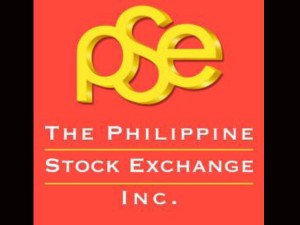
But it would not be a smooth ride up given serious external problems, the expensive valuations of local stocks and numerous equity placements that have been sapping liquidity, COL Financial head of research April Lee-Tan said in a press briefing on Wednesday.
COL Financial chief technical analyst Juanis Barredo said in the same briefing that the Philippine Stock Exchange index might need to weigh out overbought levels first, noting that the market was asking for pullbacks to muster stronger support for fresh buying. He sees the PSEi having major support levels at 5,130 to 5,150.
Barredo saw a 15-20 percent risk that the correction might go as deep as 4,750, “if something (worse) happens to Europe and China.”
This year, the index has room to go up to a new record high at the 5,500 level, with a 30-percent chance of even exceeding this target, according to Barredo. As of Wednesday, the index closed at 5,298.72.
“The Philippine index proceeds to stand out and may be able to continue to outperform— but it too may need to present occasional corrections to short-term support,” he said.
The PSEi is still in wave three, out of five of Elliot’s bullish waves, according to Barredo. “Wave 3, however, is characterized by chopping swings as the uptrend may frequently swing in and out of overbought levels,” he said.
Over the long-term, Lee-Tan said the stock market should continue to do well due to its resilient consumers, the government’s ability and willingness to spend and the growing momentum of the public-private partnership in infrastructure-building.
“There are also no signs of a bubble yet given the absence of excessive borrowings and investments,” Lee-Tan said.
But Lee-Tan explained that local equities were currently trading at expensive levels not just relative to historical valuations but also relative to prices across regional markets.
The analyst said that COL Financial’s base case scenario of the index hitting 10,000 in 5.5 years assumes a sustained 12 percent per annum growth in corporate earnings and the market’s acceptance of a 16x forward-looking price-to-earnings ratio. This means that investors are willing to pay 16 times the amount of money that company will make for a given year.
“Fundamentals should eventually catch up with expensive valuations, allowing share prices to continue going up,” she said.
Under a best-case scenario, however, Lee-Tan said corporate earnings would be sustained at 15 percent and investors would tolerate a PE ratio of 18x. If this happened, she said, 10,000 might be reachable in 3.5 years.
The worst-case scenario is if earnings would grow by only 10 percent a year and the market would stick to trading at the historical PE ratio of 14x. In this case, she said, it would take eight years for the PSEi to climb to 10,000.
Given COL Financial’s favorable view, Lee-Tan said COL Financial’s recommended portfolio comprises mostly growth stocks: Metropolitan Bank, Banco de Oro Unibank, Metro Pacific Investments, Ayala Corp., Alliance Global Group Inc., Ayala Land Inc., EEI Corp., Puregold Price Club and SM Prime Holdings.
Also cited are three high-dividend-yielding stocks in its portfolio: Bank of the Philippine Islands, Robinsons Land Corp. and Manila Water Co. “These stocks will continue to be in favor given the low interest environment,” she said.

